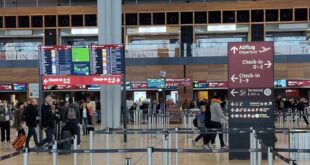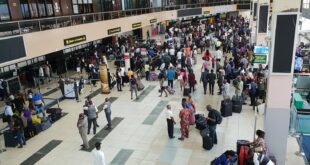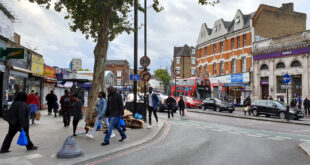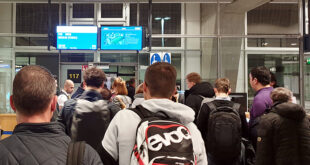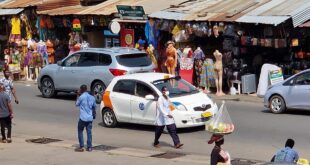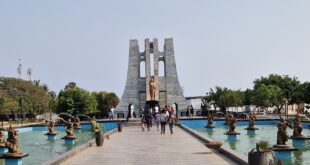“There is a desperate need for smarter mobility solutions that are environmentally sustainable and harness the power and value of sharing existing resources to benefit commuters as a whole,” says Joe Moyo, Managing Director of Afri Ride, the soon-to-be launched ride-sharing mobile application that aims to make city-to-city travelling as well as daily travels to work or school safe, cost-efficient and convenient.
Burdened with insufficient access to safe and reliable public transport, as well as major conjestion in urban areas – Africa’s transport industry is beset on all sides by challenges.
It is not just our public transport that is inefficient; the distances travelled by most citizens are too long due to poor planning that saw townships systematically situated far from places of employment and the Central Business District. This inefficiency in mobility results in the average South African spending over 88 minutes travelling to and from work daily.

“There is a desperate need for smarter mobility solutions that are environmentally sustainable and harness the power and value of sharing existing resources to benefit commuters as a whole,” says Joe Moyo, Managing Director of Afri Ride, the soon-to-be launched ride-sharing mobile application that aims to make city-to-city traveling as well as daily travels to work or school safe, cost-efficient and convenient.
Any South African who has lived or worked in a major city has felt the frustration of the total lack of reliable and safe public transport, so it is easy to see why mobility is an issue that weighs heavily on everyone’s mind. Taxis are notoriously unsafe, train-delays affect rail commuters, and congestion on the roads affects bus users and those with their own vehicles alike. “Inconvenience to commuters is merely the tip of the iceberg. The follow-on effects are felt by everyone, as congestion leads to lost productivity that costs the South African economy hundreds of millions of Rands each year,” says Moyo.
Due to the carbon tax rise as well as the precarious fuel prices in South Africa, the average travel cost per person is at the all-time high at R70.81 per day, per person. “This is where Afri Ride comes in, we provide the unique platform for commuters to either offer the empty seats in their car or book seats in cars heading to their destination,” says Moyo who refers to Afri Ride as a shared solution for a shared problem.
Addressing Africa’s mobility challenges has become a matter of urgency, however, solutions that have worked in Europe or the US, such as ubiquitous underground train networks, simply are not feasible here, nor can we assume that the same solution that works overseas, can simply be imported and adapted to our specific needs.
There are other tremendous shortcomings when it comes to South Africa’s transport sector, Moyo adds. “These include fractured and insufficient road networks that impede access to work for a major portion of the country’s population, as well as safety measures that are not up to the job. This results in an extremely high accident rate on the continent, in fact South Africa has the highest number of road traffic accidents per capita.”
According to him, nations across the continent are waking up to the need for a more innovative, and a more holistic approach to solving transport issues.
“It is encouraging that we are seeing governments relooking their transport policies in an attempt to better integrate different means of transport and improve mass transit services. However, it’s a question of a day late, and a dollar short for many of our people.”
One way to solve many of Africa’s transport challenges, is to reduce the number of journeys that take place on a daily basis. “In addition, we need solutions that meet the needs of African commuters, which is why Afri Ride is coming to the market, to introduce a digital platform which harnesses the power of technology, to allow ride-sharing collaboration that meets the unique needs of the locations in which it is used.”
There’s no doubt that ride-sharing can go a long way to solving Africa’s mobility challenges, concludes Moyo, it’s an existing concept that requires an innovative solution to solve a unique problem.
For more information about Afri Ride please visit: www.afri-ride.com
 THE AFRICAN COURIER. Reporting Africa and its Diaspora! The African Courier is an international magazine published in Germany to report on Africa and the Diaspora African experience. The first issue of the bimonthly magazine appeared on the newsstands on 15 February 1998. The African Courier is a communication forum for European-African political, economic and cultural exchanges, and a voice for Africa in Europe.
THE AFRICAN COURIER. Reporting Africa and its Diaspora! The African Courier is an international magazine published in Germany to report on Africa and the Diaspora African experience. The first issue of the bimonthly magazine appeared on the newsstands on 15 February 1998. The African Courier is a communication forum for European-African political, economic and cultural exchanges, and a voice for Africa in Europe.




